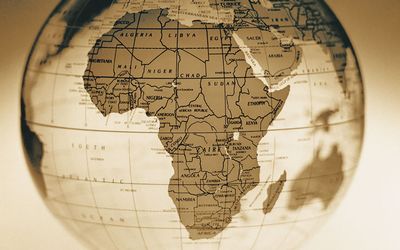PBS: Escaping Eritrea … [Read More...] about ካብ ውሽጢ ቤት ማእሰርታት ኤርትራ
Time for Africa to speed up progress
MAY 26 2015, Business Day (South Africa)
MONDAY was Africa Day, which celebrates the founding of the Organisation of African Unity (OAU) 52 years ago, when 30 of the 32 states that had then achieved independence came together to rid the continent of the vestiges of colonialism.
The OAU morphed into the African Union (AU) in 2002, amid renewed optimism that with colonialism a thing of the past and apartheid finally vanquished, the original aims of achieving peace, unity of purpose and prosperity were within grasp. There was — and still is — much to celebrate, not least the fact that the AU now has 54 members that are not only independent but democratic or moving in that direction, and the continent’s economy is growing steadily, albeit off a low base.
Africa has immense potential, not only to benefit from being resource-rich in a world where a scarcity of resources is a factor in growth forecasts, but because its diverse people have so much to offer the world. Unfortunately, that potential remains largely unrealised, which is what should be exercising African leaders’ minds.
It is also unfortunate that the official Africa Day celebrations that took place in SA at the weekend were largely marked by platitudes, as they have been for much of the past 52 years in the rest of Africa.
Peace and unity do not materialise by talking about them once a year. Nor are symbols such as the AU flag and anthem, which President Jacob Zuma apparently wants South African schoolchildren to learn and sing at “important gatherings and celebrations”, much use in overcoming real obstacles to such goals.
Part of the reason progress has been so painfully slow is that the OAU in particular was founded on the assumption that throwing off the yoke of European domination was an end in itself; that achieving independence and African self-determination would automatically bring about the longed-for social development and individual prosperity. The result was the organisation’s dominance by dictatorships whose malign influence was little different from that of the colonialists they replaced.
The launch of the AU was supposed to change all that, and for a while there was hope that the African Renaissance that was championed by former president Thabo Mbeki would gain traction. But despite some gains, especially the peace dividend from the ending of the Cold War and associated proxy conflicts in Africa, the fundamental political and economic reforms that were required to kick-start the continent’s development did not take place.
Unity remains elusive and this will be the case as long as the AU’s membership requirements are so undemanding in terms of both economic management and commitment to democracy. We cannot simply ignore the late Libyan dictator Muammar Gaddafi’s unhealthy influence over other AU leaders, the ease with which Zimbabwean President Robert Mugabe and others of his ilk escaped censure for their flagrant human rights abuses, or the collapse of the African Peer Review Mechanism.
There has been some progress in terms of regional integration and the facilitation of trade — a tripartite free trade area agreement between Southern and East African development communities is due to be signed in Egypt next month, for instance, that will eventually create a market of more than 600-million people with a combined gross domestic product of $1-trillion.
Later in the month negotiations will start for the establishment of a continental free trade area incorporating 1.3-billion people with a combined gross domestic product of more than $2-trillion. These are steps in the right direction to give us real reason to celebrate the Africa Days of the future.
